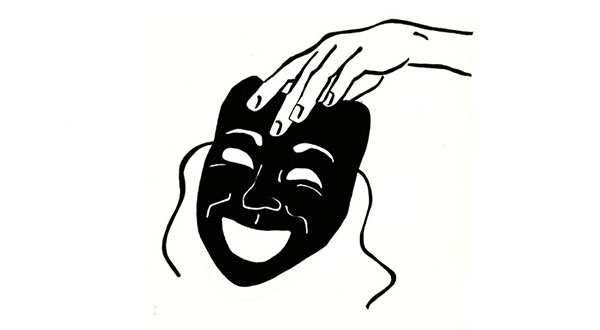WOMEN IN COMEDY

I was introduced to the world of comedy before I knew what comedy was. I distinctly remember the first episode of Seinfeld I watched: “The Subway.” Frizzy haired, wearing a Minnie mouse sweatshirt, I sat on the sofa with my family, watching my dad’s favorite program. Throughout the episode, the audience is invited inside Elaine’s thoughts as she’s stuck in the subway on her way to a lesbian wedding. I remember rewinding the video cassette over and over, crying of laughter each time.
In that moment my girl crush began, and I was forever changed.
When I was in 3rd grade, I experienced something that every woman faces at some point in her life: sexism. During my biography book report on Lucille Ball, a toothless boy named Gary wearing a pink “my sister did the laundry” t-shirt from Mervyns, screamed, “My dad says girls can’t be funny.” I was so upset, I’m pretty sure I turned as pink as his ugly t-shirt. That one sentence, that one word “can’t,” ruined the weeks of hard work I put into bringing Lucille’s legacy to life. I just told myself that Gary and his dad didn’t know what they were talking about.
A decade after my 3rd grade experience, why are there still Garys walking around claiming women can’t be funny?! I hear these same sentiments, “Women can’t be funny” over and over again, and not just from uneducated misogynists, but from respected people in the sphere of academia.
Christopher Hitchens, philosopher and journalist, essentially wrote that women don’t need to be funny. Evolutionarily speaking, men need to be funny to attract women. In his thinking, women don’t need to be funny because we’re already attractive. Comedy isn’t our world so we shouldn’t try.
Years after Hitchens’s article, many men still share these sentiments. My issue with these statements is twofold. First, the premise falsely assumes that a female comedian’s sole desire is to attract men. Comedy is a craft that takes confidence, time, and talent to master. It serves many purposes ranging from catharsis to entertainment; attracting a spouse is not one them. Second, the points are archaic. We’ve evolved past any normative “evolutionary” reasoning that men and only men need humor to attract women.
Here’s my theory: the whole evolutionary excuse is just a guise to cover up what they either consciously or subconsciously feel about female comedians. Comedy and its subcategories — satire, irony, deprecation, and observational — is rooted in intelligence. Men who claim women can’t be comedians are simply too threatened at the prospect of viewing women as their superiors. They take any opportunity to tear down a female comedian’s self-esteem in order to bring her to an equal or lesser standing than themselves, and to ensure the patriarchy stays firmly in place.
Ellen Degeneres, Chelsea Handler, Sarah Silverman, Tina Fey, Amy Poehler. These women changed the comedy world for both men and women; yet, people will criticize them for their appearance, sexual orientation, and race. I’ve read comments like. “She’s just an angry bitch, I don’t find her funny,” or “She’s only funny because she’s gay,” in order invalidate the female comedians’ positions of authority.
Tina Fey and Amy Poehler hosting the 2015 Golden Globes proves we’ve come a long way for female comedians, but a minorities’ outcry against them proves we still have a long way to go on how we view and treat them.




